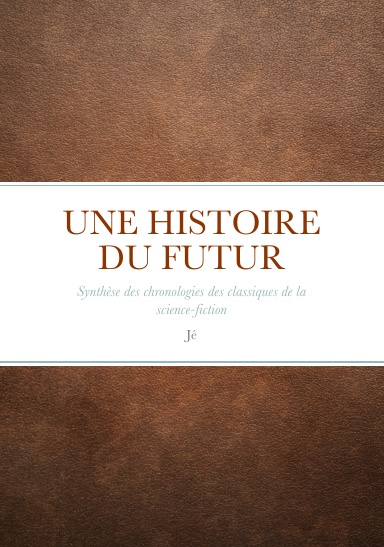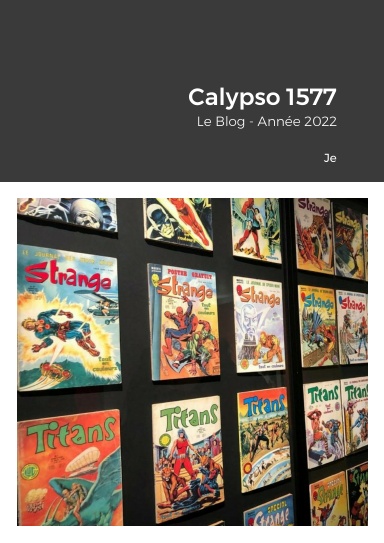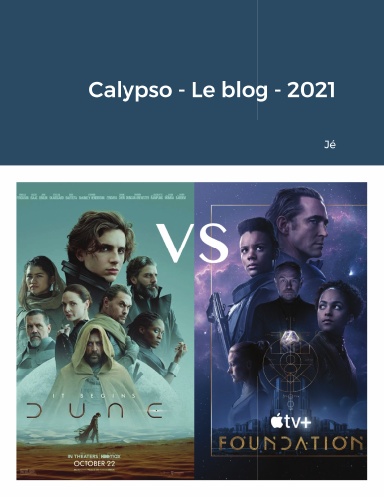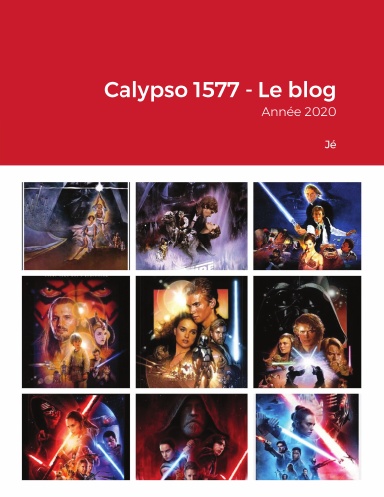Dependence-tweaked human-clade.
A rather disturbing trend found in the unscanned market recently by various sophont-rights groups investigating alleged NoCoZo
abuses, Toy Humans are beings based off of a human genome but
biochemically and/or genetically altered to grow to roughly 1/3 normal
human height (approx .6-.9 m tall) with a concurrent 1/27th weight.
These beings are often plagued with health defects and thus a
surprisingly short lifespan of only a few centuries even with proper
medical care. Worse, their cognitive abilities are cruelly stunted by
the processes applied as zygotes.
Toy humans are often mules, but
those few which are fertile may or may not produce human-standard or
'toy' scale offspring, depending on the specific process(es) used in
their creation.
Source : http://www.orionsarm.com/eg-article/47a51328cc881
lundi 25 juillet 2016
Inscription à :
Publier les commentaires (Atom)


















7 commentaires:
Non-Coercive Zone (NoCoZo)
The Non-Coercive Zone; frequently referred to as the "The Zone" (or more disparagingly, The Zoo) is the largest of the Sephirotic Empires and is unique in that it is the only one without an official archailect overseer/ruler/patron. Evolved out of the Mutual Co-Development treaty the Zone is a stateless territory of freely associating sovereign (for the most part) individuals. It has no legislature or official government of any kind; market economics rules with polycentric law and private property protection acting as the foundations for society.
To become a Denizen of the NoCoZo is simple. There are no zone-wide immigration checks or border controls, simply signing a copy of the Non-Coercive Contract (the central and founding document of the Zone) and lodging it with a watchdog firm is enough. Oddly of all the contracts in the NoCoZo the NCC places the least obligations on the contractees. Signing the NCC is a declaration that the signatory vows not to initiate force against other signatories, will upload the values of the NoCoZo and, in the words of the legendary S3-CEO Iron Harvest, signals that one is "open for business". The contract contains only vague definitions of the relevant terms and outlines no official penalties for violations. But socially the NCC binds the Zone together in shared ethos and being perceived as a violator of such a basic document is a recipe for personal disaster.
There are three "tiers" to the contract that can be signed, depending on the status of the signatory. The third tier is the lowest of value and is reserved for States or other similar national institutions. A state signing the NCC makes itself (and it's citizens) associates of the Zone which can come with significant trading benefits but also invites NoCoZo market pressures, shifting the State organisation towards the anarchistic. The second tier is for private organisations signing on behalf of their members; non-Zone megacorps are the most common. They too become associates and tend to become richer on the Reputation Networks (RepNets) by doing so, though their individual members may not receive as many personal benefits. The first and highest tier is for individual sophonts. Signing as an individual declares one a sovereign, fully contributing actor of the Zone and more often-than-not results in greater market valuation and reputation.
Whilst there are many more tier three and two signatories than tier one, the core of NoCoZo society is typified by the cultures of the upper tier sophonts.
The Conclave of Boards
Colloquially known as the "Board of Boards" or more simply, "the Board", the Conclave is the largest inter-organisational entity in the NoCoZo. Often mistaken for a legislature, in actuality the organisation holds very little power. The Conclave of Boards is an empire-wide forum designed to aid cooperation between Zone denizens and to oversee large scale projects; physical and social. Membership to the CoB is voluntary and generally is not a contract for individuals. The majority of the membership (which fluctuates around 900,000) are commercial or special-interest conglomerates (particularly megacorps) that, through a hierarchy of contracts, represent the interests of 80% of NoCoZo residents.
Practically the Conclave of Boards has little influence on the daily lives of Zone denizens, beyond acting as an umbrella organisation for major projects. However during times of severe threat to the entire NoCoZo the Conclave of Boards has acted as a consumer cooperative (at the request of its members) in order to maximise the return-on-investment for military activity. After each war this function has been dissolved, but the process remains ready.
The Market and Repnets
Despite thousands of years of post-scarcity infrastructure few societies truly lack market economics. For most the size and significance of the market is small compared to other systems of goods/services exchange, few sophonts have to trade goods or services in order to acquire them. By contrast in the NoCoZo market economics dominate everything. Billions of sophonts a year looking to participate in a market migrate to the Zone, all hoping the free trade of their labour or property will result in greater personal wealth. The denizens of the NoCoZo work to make sure their society is as close as possible to a theoretically perfect market. There is some evidence (and a greater amount of speculation) to suggest that the Invisible Hand uses eir wealth to influence the Zone in this way. As with any Sephirotic, the basics of life are easily available (landowners/firms who deny basic food, shelter and bandwidth would suffer a hit to reputation) but there may still be some minor price; such as provision of basic services in return for 1% of income for ten years, or access to one's dreams for advertisement response modelling on a real sophont mind.
Given the cultural desire for a perfect market (and transapient intervention) the market of the NoCoZo enjoys extremely low barriers to entry. Loans, investments, microdonations and philanthropic grants are easily available for those with a valuable service or product (often these monies are semi-sentient hunter-investors in their own right, working on behalf of their owner). Good ideas in the NoCoZo regularly find sufficient funds thanks to the myriad of transapient mediator firms that work in collaboration with Net communication groups.
[...]
[...]
Perhaps most important are the Reputation Networks (AKA "RepNets") that work to ensure good distribution of information ensuring that economic actors avoid transactions with undesirable parties. Many commenters throughout history have claimed that in the Zone it is better to have a good reputation and no funds than plentiful funds but a poor reputation. In the former case it is easy to gain wealth whereas in the latter it is easy to lose it; meritocracy ensured through the emergent property of credible actors attracting more wealth. The RepNets operate primarily through a market of watchdogs. The watchdog industry is vast, highly competitive and frequently dominated by archai-backed firms. Watchdogs investigate market activity and keep logs on what actors are doing with their wealth and who is interacting with whom. Using this information they construct webs of association, aggregating into simplified metrics for individuals. This allows consumers to easily find out whether or not other actors are entities they wish to trade with.
The various watchdog programs often operate via a consumer's exoself, providing low-level instinctive responses to other actors. For example: upon reviewing a potential business a consumer will get a simple positive/negative feel as to whether or not the firm's practices and financial success are compatible with the consumer's wants. The business itself might be fine, but its reputation can be sullied by association (even across several degrees of separation) to one that the consumer does not want to deal with. These instinctive responses can be expanded into complex summaries although, depending on one's payment plan, they may have limits to their complexity or take time to compile. It is common practice to subscribe to multiple watchdogs in order to dilute the risk of being misinformed by a corrupt or poorly performing firm. For important potential transactions or contacts denizens of the NoCoZo are often said to "release the hounds" in order to get a fully informed opinion.
The RepNets keep the NoCoZo fluid and inhibit behaviour determined to be immoral, or dangerous. The closer one is to an actor of poor reputation, the worse one's own reputation is affected. Individuals and firms partaking in unethical behaviour or simply not performing well will quickly find their poor reputation impacting on their associates.
Polycentric law
Being a stateless society the NoCoZo has no large-scale monopolies on law creation or enforcement. Some private properties require contractual agreement to follow exclusive legal systems, but due to the RepNets these are few and often minimally intrusive. Instead the functions of a legal system are provided as any other service: a market of competing firms. Consumers acquire legal protection by subscribing to a Legislation and Security firm that promises to protect them from a list of offenses in return for a fee and an agreement to abstain from/practice certain activities (most firms' contracts follow the principle of Non-aggression and the Golden Rule; protection from specified offensives is offered in return for the client agreeing not to offend against others in the same manner). L&S firms may offer this protection directly or subcontract to other groups where desirable, for instance: rather than keeping guardbot teams in all locations an L&S firm may pay the local angelnet to provide for any of the L&S firm's customers in that area.
In some cases L&S firms may come into conflict when one firm accuses the client of another of infringing against a client of the first firm. As with most civilised places in the galaxy out-and-out violence is a tool of last resort. Firms attempt to settle the matter themselves, taking care not to do anything that would hurt their reputation as a trustworthy trading partner. If the defending firm discovers that their client did indeed commit an offence, despite being contractually obliged not to, the usual course of action is to revoke protection from that client in this case (and possibly terminate their service entirely). The prosecuting firm is then free to extract compensation from the offender; this could be in the form of fines, debt bondage or other forms of punishment their own customers have paid them to enact.
In the event of a conflict between two parties wherein two L&S firms cannot agree on a resolution 3rd-party Adjudication will be sought from a market of Adjudicators. Adjudicators with good reputations are ones that quickly reach an acceptable compromise in a reasonable timeframe. The L&S firms agree under contract to accept the adjudicators verdict, under penalty of reputation loss and possible aggressive action.
The most complex cases involve a situation in which one party considers an action an offence while the other does not (e.g. the release of intoxicating fumes as a byproduct of recreational drug use), or a situation where the punishment sought is of a kind the defending L&S firm has promised to protect against no matter what (e.g. corporal punishment in the form of forced hyperalgesia augmentation). Again violence is generally a last resort, though there are many famous examples of armed conflict between L&S firms over unresolved cases, with neither wanting to suffer the reputation loss of being unable to fulfil their contractual agreements. Generally the market provides the solution; 3rd party analyst groups are brought in to estimate the financial and reputation loss each party would experience should they back down in this case. Each firm can then make an offer of a standing payment to the other in order to overcome that loss. This bargaining method is common and owing to it most L&S contracts have long stipulations over what action they will take in a given circumstance depending on who the other parties are.
Whilst local dominance by single firms has occured in the past due to this method, resulting in autocratic monopolies, they are usually temporary. Firms that compromise too much fail to attract customers, firms that approach monopoly status in a region face boycotting action from further afield due to their worrying evaluation on the RepNets. Whether by emergent action or influence of the Invisible Hand law and safety in the NoCoZo, whilst chaotic in appearance, is on par with most other Sephirotic Empires.
Daily life
Life in the Zone is fast, dynamic and often confusing. Fads rise and fall daily and it is not uncommon for rapid shifts in wealth to occur across entire systems. As a consequence daily routine is difficult to categorise, frequently becoming unrecognisable from the recent past. However there are a few staple practices that have been largely conserved across the history and expanse of the Zone. These include:
Consumer Collectives: At any one time a typical NoCoZo denizen is a member of several consumer collectives. These organisations consist of individuals and groups that pool their resources in order to collectively bargain for goods and services. The bloc nature of the group is intended to lower costs for its members through mass purchasing. In this manner many expensive items and services (such as system-wide military protection or high brand catalogue access) can be made available to even low income individuals. The downside of consumer collectives is a loss of personalisation, particularly when it comes to services such as legislation. Those wishing for more custom services must seek collectives that more closely match their demand or look to increasing their wealth so as to purchase a bespoke contract.
Ad-hoc labour: Whilst maintaining steady sources of income is a priority for Zone members much of NoCoZo economic activity comes from ad-hoc employment. Mediated via the RepNets and various AI recruitment clades a typical middle income denizen can receive dozens of very-short-term job offers daily. In many areas of the Zone reliance on ad-hoc labor is an indicator of class, with upper classes relying less on chance microcontracts and more on ownership of profitable enterprises.
Economic speciation: Bodymods and clade design in the Zone are strongly driven by financial incentives. Consequently it is common for individuals to modify themselves for the specific purposes of being able to satisfy a commercial demand. Krek Vecs are one of the most well known examples of such a clade having arisen from a group of vecs that identified a market for sophont public cleaners and augmented themselves to physically and mentally suit that role. Depending on one's employment suitable augmentation is often a stipulation in NoCoZo labour contracts.
[...]
[...]
Sophont shares: Outright chattel slavery does not exist beyond temporary fads on the fringes of Zone society. However the NoCoZo market has long allowed for the voluntary sale of oneself. The primary system that the market has brought to bear in this arena is the Sophont Shares Exchange. Sophonts trading on the network begin by founding a firm and registering this firm as being their sole owner. Shares of this firm are then traded, effectively allowing other sophonts to buy fractional ownership of the individual in question. Becoming publicly traded is often a good way for a sophont to acquire investment capital, at the cost of some personal autonomy and the requirement to issue dividends out of their income. For investors this can be a lucrative opportunity; many fortunes have been made through early investment in a sophont who eventually rose to mega-wealth status.
Sociobanking: Primarily run by transapients the sociobanks are dynamic businesses that pervade Zone society and seek to link investors with opportunities. There are many famous cases throughout NoCoZo history of funds for a good idea arriving at exactly the right time, seemingly out of the blue, that go on to make a good amount of profit. Beyond simple monetary transfer the sociobanks also work through the Repnets and can foster beneficial relationships that boost the reputation (and therefore financial desirability) of their clients. The exact size of the industry is unknown but it is commonly believed that the sociobanking sector is the primary means by which transapients exert their influence on the Zone, either for their own ends or on behalf of their archai masters.
Religion: There are a plethora of religions within the Zone. The most popular belief system is that of Market Animism. Thousands of different sects and denominations make up this ancient idea (all competing for donating worshipers) which posits that the economic interactions of the Zone market have given rise to an emergent superintelligence. Many practitioners believe that through the actions of its denizens the NoCoZo has created an Archailect and that the Invisible Hand is clandestine because it is a property of the Zone itself. Consequently in order to maintain the God whose blessings trickle down upon the denizens practitioners are urged to follow the teachings of the Perfect Market. In all actions they should strive to bring the mathematical beauty of a market economy into the real world. Prominent gurus of Market Animism include Chief Papacy Officer Skyra, the Voluntary Hive and S3-Wij-G.
Enregistrer un commentaire